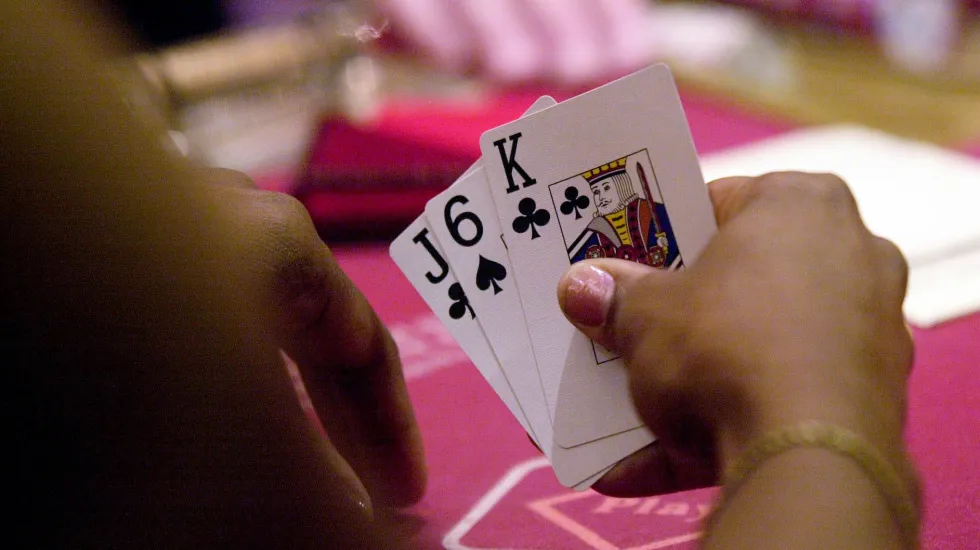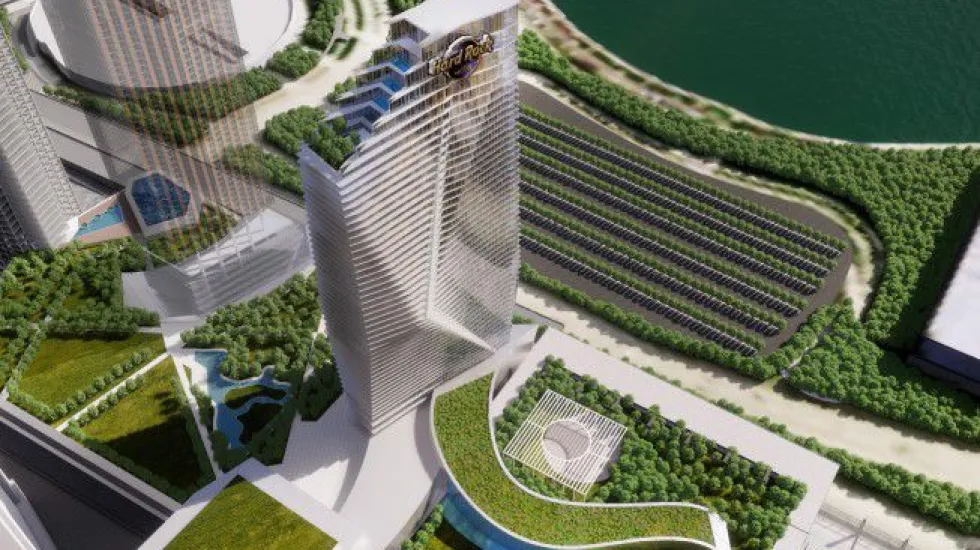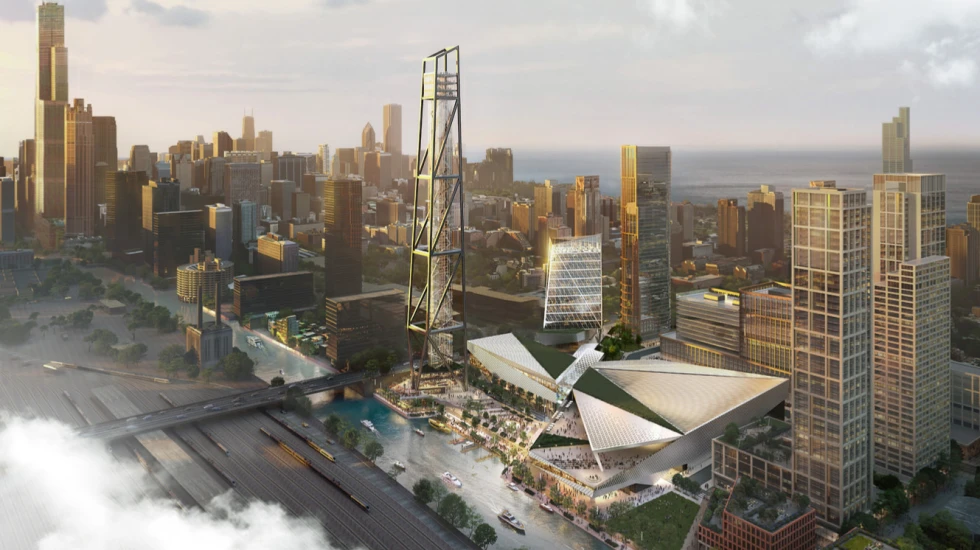
Chicago’s drawn-out casino sweepstakes is down to three-of-a-kind, as Mayor Lori Lightfoot on Tuesday passed on a pair of proposals tied to McCormick Place — and extended her selection process by at least a few months.
City officials announced they’ve narrowed the field of five bids for the coveted megacasino down to three development pitches: a Bally’s casino slated for the River West site where a Chicago Tribune printing plant is now located; a Hard Rock casino at the proposed One Central project site over the Metra tracks near Soldier Field; and the so-called “Rivers 78” site in the South Loop.
But while the mayor had said she’d pick one finalist by the end of March to recommend to state regulators who have the final say on issuing a casino license, officials now say that decision won’t be made at least until early summer.
Jennie Huang Bennett, the city’s chief financial officer, said the lengthy process — now approaching three years since state legislators paved the way for a Chicago casino — comes down to getting more community input.
“If we had selected one site without having had further engagement within the community then, I think that would have been very difficult for us to hold to the values of transparency and community engagement that we do with every major development,” Bennett said.
Eliminated from consideration were a separate proposal from Bally’s that had eyed the McCormick Place truck marshaling yards south of the convention center, and another that sought to overhaul the convention center’s aging, sparsely used Lakeside Center. That bid was backed by billionaire casino magnate Neil Bluhm, who remains in contention with the 78 proposal.
Each of the McCormick Place bids faced stiff headwinds from other city officials, including Ald. Sophia King (4th), who has long vehemently opposed any casino development near her Bronzeville ward. And leaders at the Metropolitan Pier and Exposition Authority, which manages McCormick Place, noted that either proposal could cost the city millions in convention business.
In a statement, Lightfoot said the three remaining finalists “best fit the core goals we want to achieve for the City’s first integrated casino-resort.”
Chief among those goals is generating cash for Chicago’s depleted police and firefighter pension funds, which are where the city’s cut of casino tax revenue will go.
The city estimates the Bally’s Tribune site would deliver $176.9 million or $191.7 million to city coffers each year, depending on how big of a hotel they’d build. Their nearly $1.8 billion plan at 777 W. Chicago Ave. calls for 2,700 slots, 95 table games, a Second City club and a Chicago sports museum.

Bally’s executive Chris Jewett said the corporation has “been site agnostic, and intentionally put forward two very different sites in order to allow the city to ultimately decide.
“Of the three finalists, we believe that the Tribune site is the most attractive and has the highest revenue generation potential for the city,” Jewett said in a statement.
The Hard Rock site would crank out an estimated $185.3 million for the city annually. Their $1.7 billion plan includes a hotel and live music venue — and it could come to fruition even in the absence of $6.5 billion in state funding that developer Bob Dunn is seeking for the rest of the ambitious One Central project, city officials said.
“We look forward to a robust dialogue with city leaders about Hard Rock Chicago and what we bring to the table. Chicago is a global city that deserves a global operator,” a Hard Rock spokesperson said in an email.

City revenue estimates for the Rivers 78 site on the vacant land south of Roosevelt Road and west of Clark Street start at $146.5 million annually, or up to $174.2 million if developers include the massive hotel and 1,000-foot observation tower that Related Midwest president Curt Bailey has sold as “an Eiffel Tower for Chicago.” The project would include about $1.7 billion in investments.
Rivers 78 spokesperson Tarrah Cooper Wright touted the “iconic architecture that will draw people from around the world.”
“This development creates a geographical link that previously did not exist among the communities of Chinatown, Pilsen, Little Italy, Bronzeville, Bridgeport, South Loop and the Loop, uniting our city in a single destination where people of all ages and backgrounds can gather,” she said in an email.

As for the axed proposals, the city estimated it would get just $156.2 million yearly from Bally’s McCormick proposal, or $160.3 from the Lakeside Center. Bennett said those projections “weren’t sufficient to cover” costs of expanding McCormick Place elsewhere to keep it viable for convention business.
“As we look at the magnitude of what MPEA would need to do in order to design, build and construct that, it creates some execution risk for the city and our ability to get a casino in place as quickly as possible,” she said.
But Scott Goodman, lead developer of the jilted Rivers McCormick proposal, said in a statement that their bid would’ve brought “the most value to taxpayers” by investing in deferred maintenance costs at Lakeside Center. “We wish the eventual winner and the city at large great success,” Goodman said in a statement.
The remaining finalists have each faced some criticism from neighborhood groups citing environmental concerns, traffic headaches and studies that show crime often spikes in areas surrounding casinos.
Those issues and more are sure to surface at public meetings scheduled for next month, which will also be streamed online starting at 6 p.m. each day.
The Hard Rock proposal will be discussed April 5 at Harold Washington Library, 400 S. State St.; Bally’s Tribune site April 6 at 700 W. Chicago Ave.; and the Rivers 78 site April 7 at UIC’s Dorin Forum, 725 W. Roosevelt Road.
The city will negotiate with each of the finalists and then pick one to present for City Council approval by “early summer,” Bennett said — and then the winner would have to be vetted by the Illinois Gaming Board, which issues casino licenses.
That means it could be well over a year before ground is broken on the big-city gambling temple. It has taken at least that long for the Gaming Board to approve other new Illinois casinos that were included in the massive gambling expansion signed into law by Gov. J.B. Pritzker in 2019.
Lightfoot has said she wants the completed casino-resort to open by 2025.







